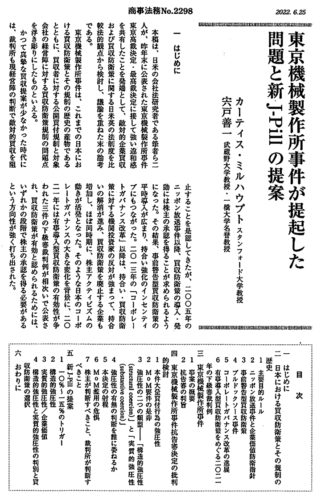Renewed Interest in Takeover Defenses in Japan

In an article written in Japanese, Curtis Milhaupt, the William F. Baxter-Visa International Professor of Law at Stanford Law School and co-author Zenichi Shishido, professor emeritus at Hitotsubashi University, analyze problematic aspects of a recent, controversial Japanese Supreme Court decision validating the use of a “poison pill” corporate defense against an activist shareholder. In the article, published in Japan’s leading business law journal Shoji Homu, Professors Milhaupt and Shishido argue that the method by which shareholders approved the defensive measure, by a vote of the majority of shareholders unaffiliated with the activist, was borrowed out of context from Delaware case law and is subject to abuse by target company management in Japan’s prevailing corporate governance environment. Their view challenges an emerging consensus among Japanese corporate law scholars on the appropriate use and approval of poison pills in Japan. The article will be republished in a special journal issue dedicated to this ongoing policy debate.

In a draft companion piece, Professors Milhaupt and Shishido examine parallels and differences in the development of the poison pill defense in the United States and Japan over the past two decades, and discuss the renewed relevance and controversy surrounding the poison pill in both countries in an era of shareholder activism and intense interest in environmental, social and governance (ESG) issues.
